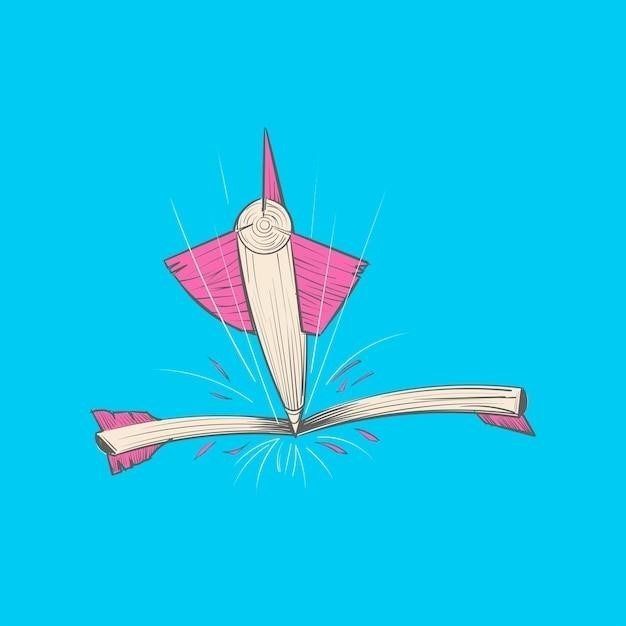Finding “Lord of the Flies” PDF Online
Numerous online sources offer “Lord of the Flies” PDFs. Explore online libraries, educational websites, and dedicated download sites. Remember to check for copyright compliance.
Accessing PDFs through Online Libraries and Educational Resources
Many libraries and educational institutions provide digital access to literary works, including William Golding’s “Lord of the Flies.” These resources often host curated collections of classic literature, making PDFs readily available for students and researchers. Check your local library’s online catalog or explore the digital archives of universities and colleges. Project Gutenberg and similar open-access initiatives might offer free electronic versions. Remember that access may vary depending on your location and institutional affiliation. Some platforms may require a login or library card for full access to their digital resources. Always respect copyright laws and only access materials through legitimate channels provided by these institutions. Utilize these reputable sources to ensure you are accessing a legally obtained copy of the novel.
Locating Free PDFs on Download Sites
While some websites offer free “Lord of the Flies” PDFs, exercise caution. Many such sites may host illegally uploaded copies, violating copyright laws. Downloading from unreliable sources risks malware infection. Legitimate platforms like Project Gutenberg may offer free ebooks, but they are often in formats other than PDF. Always verify the source’s legitimacy before downloading any file. Look for reviews or testimonials from other users. Be wary of sites with excessive ads or pop-ups, which are often associated with pirated content. Prioritize secure and trusted sources to avoid legal issues and protect your device. Remember, respecting copyright is crucial, and obtaining a book through illegal means harms authors and publishers. Consider purchasing a legitimate copy or borrowing from a library for safe and ethical access.
Utilizing Online Book Readers and Archives
File Formats and Accessibility
“Lord of the Flies” PDFs appear in various formats⁚ single-page, full text, and different PDF versions. Accessibility features vary; some may include text-to-speech or language options.
Variations in PDF Versions (e.g., single-page, full text)
Language Options in Available PDFs (e.g., Spanish)
While English is the original language of William Golding’s “Lord of the Flies,” the availability of translated versions in PDF format can broaden accessibility for a global readership. Searching online may reveal PDFs in various languages, including Spanish (“El Señor de las Moscas”), French (“Le Seigneur des Mouches”), and others. The existence of these translated PDFs expands the novel’s reach, enabling readers who may not be fluent in English to engage with the story and its themes. However, it’s crucial to verify the translation’s quality and legitimacy before relying on a particular version. The accuracy and nuances of translation can vary significantly, impacting the overall reading experience. Always seek out reputable sources for translated PDFs to ensure both accuracy and legal compliance.
“Lord of the Flies” Publication Details
William Golding’s “Lord of the Flies” was first published in 1954. Numerous editions exist, impacting PDF availability and ISBN numbers. Check publication details when searching for PDFs online.
Original Publication Date and Publisher
William Golding’s seminal work, Lord of the Flies, first graced the shelves in 1954. Faber and Faber, a prestigious British publishing house, initially brought this allegorical novel to the world. Its initial publication marked the beginning of a remarkable journey for the book, rapidly gaining recognition for its insightful exploration of human nature and societal structures. The original edition quickly established the novel’s place in literary history, though its initial success was modest. Despite the later widespread popularity and inclusion in numerous curricula, the original publication date and publisher remain integral to understanding the book’s impact and evolution. The initial reception and sales figures provide a fascinating contrast to its enduring legacy as a modern classic frequently adapted, analyzed, and discussed. The original publisher’s choice to release this complex work played a significant role in shaping its reception and influence on subsequent generations of readers.
Different Editions and their Availability as PDFs
Over the decades, Lord of the Flies has seen numerous editions, each potentially impacting its presentation as a PDF. Variations exist in formatting, including single-page versus multi-page layouts, impacting readability and ease of navigation. Some PDFs might feature illustrations or annotations absent in others. The availability of specific editions as PDFs varies widely depending on copyright restrictions and digitization efforts. Older editions might be harder to find in digital form than more recent ones, particularly those published before widespread online access. Scholarly editions often include critical essays and textual notes, which may or may not be present in standard editions adapted for digital formats. Searching online requires careful consideration of edition specifics to find the desired version, as the quality and features of these digital versions can differ significantly.
ISBN Numbers and Associated Editions
ISBNs (International Standard Book Numbers) are crucial for identifying specific editions of Lord of the Flies. Each ISBN uniquely identifies a particular edition, differentiating it by publisher, publication date, and format. Knowing the ISBN allows for precise searches when seeking a specific PDF. Different editions might feature variations in text, illustrations, or supplementary materials, and the ISBN helps distinguish these. Online booksellers and libraries frequently use ISBNs in their cataloging systems, simplifying the search for a particular edition available as a PDF. When searching for a PDF online, providing the ISBN increases the chances of finding the exact edition desired, ensuring compatibility with specific study guides or classroom materials. Cross-referencing ISBNs with online databases can reveal which editions have been digitized and are accessible as PDFs.

Exploring “Lord of the Flies” Content
Access the full text, individual chapters, or select excerpts in PDF format. Many online resources offer these options for convenient reading and study.
Access to Full Text PDFs of the Novel
Finding a complete, downloadable PDF of “Lord of the Flies” can be achieved through various online avenues. Many websites dedicated to classic literature or offering free ebooks may host the full text. However, caution is advised; ensure the source is reputable and respects copyright laws. Some digital libraries associated with educational institutions or public libraries might provide access to a downloadable or viewable PDF version of the novel. These platforms often require registration or membership, but they ensure legal access to the copyrighted material. Remember to always respect intellectual property rights and avoid downloading from sources that may be illegally distributing copyrighted works. Always verify the legitimacy of the source to avoid any legal complications. Legitimate sources will often have clear attribution and terms of use for the PDF.
Chapter-by-Chapter PDF Downloads
While finding the entire novel as a single PDF is common, locating chapter-by-chapter downloads of “Lord of the Flies” might prove more challenging. Some websites specializing in providing individual chapters of books for educational purposes may offer this option. However, this is less frequent than full-text downloads. The availability of such segmented PDFs often depends on the copyright status and licensing agreements. If you encounter a site offering individual chapters, carefully review its terms of use and copyright information before downloading. Remember that even individual chapters are subject to copyright protection. Therefore, always prioritize legal sources to avoid potential infringement issues. Exploring academic databases, which might offer excerpts or individual chapters for research purposes, could also be a viable option, though access often requires subscriptions or institutional affiliations.
Availability of Summaries and Quotes in PDF Format
Beyond full-text PDFs, you can often find “Lord of the Flies” summaries and quote compilations in PDF format. These resources are readily available online, often created by students, educators, or literary analysis websites. Many offer concise overviews of the novel’s plot, key themes, and character development. These summaries can be particularly useful for quick reviews or for understanding the main points of the novel before a deeper dive into the text itself. Similarly, quote collections provide easy access to impactful passages from the book, aiding in literary analysis or supporting essays and presentations. However, always verify the credibility of the source, ensuring accuracy and avoiding plagiarism. Reputable academic websites or educational platforms are usually reliable sources for these materials; be cautious of informal or unverified online resources.

Legal and Ethical Considerations
Downloading copyrighted “Lord of the Flies” PDFs without permission is illegal. Respect copyright laws; use only legally accessible versions.
Copyright and Legitimate Access to PDFs
Copyright protection safeguards authors’ rights, including the digital distribution of their works. Accessing “Lord of the Flies” PDFs requires adherence to copyright law. Unauthorized downloads or distribution infringe these rights, potentially leading to legal repercussions for both downloaders and distributors. Legitimate access involves purchasing the ebook or obtaining it through authorized online libraries or educational platforms which provide legal access. Many libraries offer digital copies; check their online catalogs. Educational institutions often subscribe to databases containing licensed ebooks, providing students with legitimate access to “Lord of the Flies” and other literary works. Always verify the legality of any PDF source before downloading to ensure compliance with copyright regulations and ethical practices. Respecting authors’ rights is essential in supporting the creation and dissemination of literature.
Challenges and Bans of the Novel in Schools
William Golding’s “Lord of the Flies” has faced challenges and bans in schools due to its mature themes and content. Concerns often center on the novel’s depictions of violence, profanity, and morally ambiguous situations. Some argue that the book’s graphic descriptions are inappropriate for younger readers, while others believe it promotes negative behaviors or offers a bleak view of human nature. These challenges often spark debates about age appropriateness, censorship, and the role of literature in education. The book’s exploration of human savagery and the breakdown of societal order can be unsettling, leading some to deem it unsuitable for certain age groups or educational settings. However, proponents highlight its literary merit, allegorical significance, and its value in sparking critical discussions about human nature and societal structures within appropriate educational contexts. The ongoing debates underscore the complexities surrounding the selection and use of literature in schools.
Ethical Concerns Regarding Unauthorized Distribution
The unauthorized distribution of copyrighted “Lord of the Flies” PDFs raises significant ethical concerns. Sharing copyrighted material without permission infringes on the author’s and publisher’s intellectual property rights. This undermines their ability to profit from their work and discourages future creative endeavors. Furthermore, accessing pirated copies deprives authors of rightful compensation for their creative efforts. Free distribution of copyrighted material also disrupts the legitimate book market, potentially harming bookstores and libraries. The ease of sharing digital content necessitates a heightened awareness of copyright laws and ethical responsibilities. Respecting intellectual property rights is crucial for fostering a sustainable environment for authors and publishers, ensuring continued access to quality literature. Downloading or sharing unauthorized PDFs is ethically problematic and potentially legally actionable.